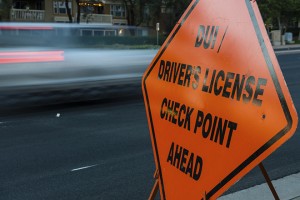
To Refuse or Not to Refuse. That is the question
It’s late. You’re driving home from a night out with friends and you see the red and blue flashing lights in your rearview mirror. Your heart rate begins to speed up as you wonder what you’ve done wrong. The officer approaches your window and after a few minutes he says that he suspects you of driving under the influence of alcohol. Inside, panic sets in. The officer starts asking you all kinds of questions, including do you want to take a breath test. What do you do? Do you refuse or do you take the breath test?
First, you want to make an informed decision.
If you are stopped for a DUI there are two types of breath tests that you need to know about. The first is a preliminary breath test or PBT. The officer usually gives this test at the scene of the traffic stop. He will use a handheld breathalyzer to determine your blood alcohol concentration (BAC). The second breath test happens once you are placed under arrest for DUI. The officer will take you to another location, usually a police station or the jail to have your blood tested by the ECIR II. This machine is monitored by the Department of Forensic Science and it is designed to give a more accurate reading of your BAC.
So should you take the first test, the PBT?
If you decide to take a PBT the officer will use the results to determine if you should be arrested for DUI. For example, the officer might believe that you are not that intoxicated because you did really well on the field sobriety tests. But then you take a PBT and it shows a BAC of .08 or higher. The fact that you did really well on those tests won’t matter because the results of the PBT, by itself, are enough to arrest you for DUI. Taking the PBT gives the officer more evidence against you. Not taking the PBT will force the officer to rely on other evidence like your driving or your field sobriety tests before he can arrest you for DUI.
Will you get penalized if you don’t take the PBT? No. In fact, if you refuse to take it your refusal cannot be used against you during trial and the officer will have to rely on other factors to show why he arrested you for DUI.
What about the second breath test?
If you are arrested for DUI the officer will ask you if you want to take another breath test using the ECIR II, a more accurate machine. In most cases a person driving in Virginia is deemed to have consented to take a breath test if they are arrested for DUI. The results of this second breath test can be used against you at trial. If you take the test and your BAC is .15 and above the Court is required to sentence you to mandatory jail time if you are found guilty of DUI.
Can I refuse the second breath test?
You can refuse the second test but you will likely be charged with Unreasonable Refusal under Section 18.2-268.3 of the Virginia Code. A first offense refusal is a civil offense that will result in a one-year license suspension and a fine. However, it’s important to note that if your license is suspended for refusal you CANNOT have a restricted license to drive to work, school or other places. If you charged with refusal 2nd or 3rd offense these are criminal offenses and a conviction will carry potential jail time and a fine.
It is important to be aware of the consequences before you decide to take a breath test or refuse it. However, you can avoid this problem by being responsible and choosing not to drink and drive. Those who do should plan ahead and have a designated driver, taxi or Uber driver ready to take you home or to your next destination. Be safe out there and make smart choices!
Leave a Reply